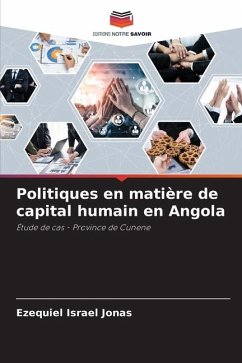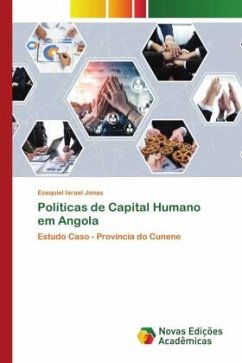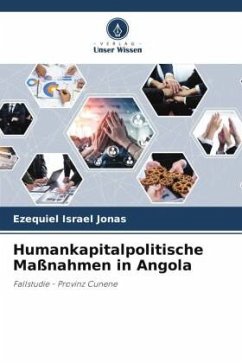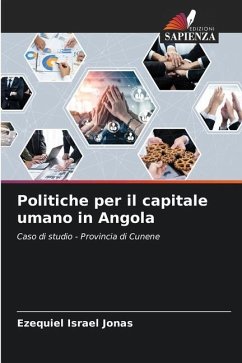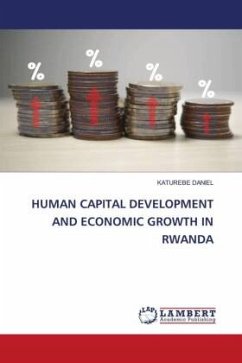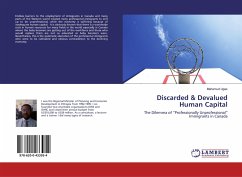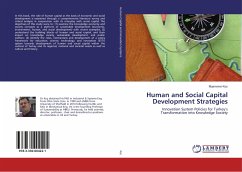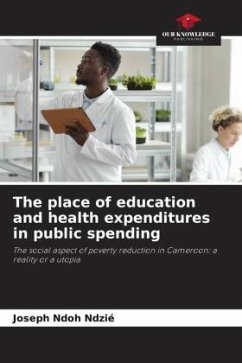
Human Capital Policies in Angola
Case Study - Cunene Province
Versandkostenfrei!
Versandfertig in 6-10 Tagen
45,99 €
inkl. MwSt.

PAYBACK Punkte
23 °P sammeln!
This book analyzes human capital development policies in Angola, and a case study of Cunene Province. Significant investments have been made in infrastructure and skills upgrading, but there are challenges that affect development. The lack of continuity in local educational training results in students fleeing to other regions, leading to a loss of talent. The lack of comprehensive data and local experts hinders research and limits knowledge of the local reality. There is resistance to hiring professionals from other regions, due to nepotism and tribalism, excluding qualified talent. Lack of p...
This book analyzes human capital development policies in Angola, and a case study of Cunene Province. Significant investments have been made in infrastructure and skills upgrading, but there are challenges that affect development. The lack of continuity in local educational training results in students fleeing to other regions, leading to a loss of talent. The lack of comprehensive data and local experts hinders research and limits knowledge of the local reality. There is resistance to hiring professionals from other regions, due to nepotism and tribalism, excluding qualified talent. Lack of proper planning in building infrastructure and professional training results in inefficient spending. The creation of a body to manage local staff and plan training is recommended, as well as continuity policies. Reliable statistical data is essential, as are higher education institutes to absorb locally trained technicians. Overcoming these challenges requires coordinated actions to promote adequate training, appreciation of local professionals and efficient use of available resources.





